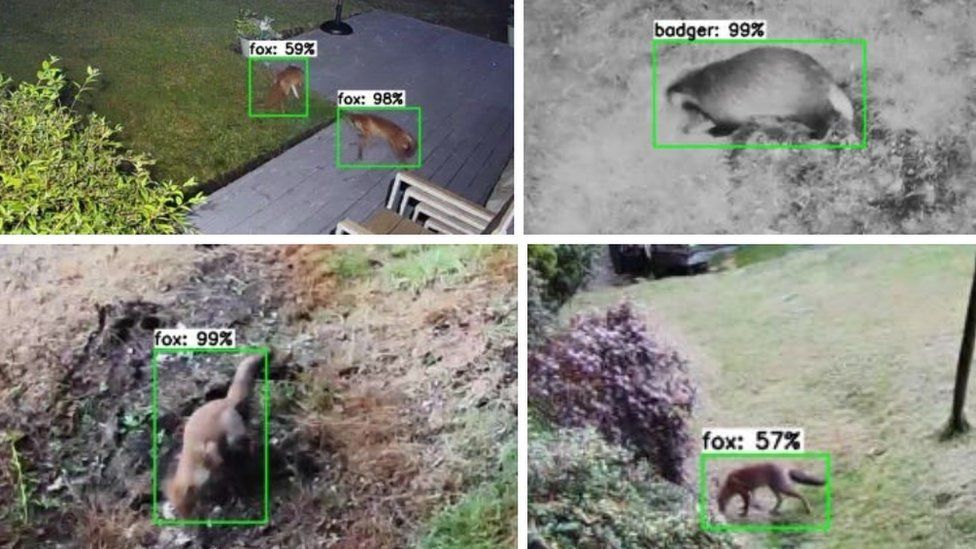ARTICLE AD BOX
 Image source, James Millward
Image source, James Millward
The Furbinator 3000 in action identifying foxes and badgers
By Tom Singleton
Technology reporter, BBC News
A man got so fed up with foxes and badgers fouling in his garden that he adapted cameras to help repel them.
James Milward linked the Ring cameras at his Surrey home to a device that emits high frequency sounds.
He then trained the system using hundreds of images of the nocturnal nuisances so it learned to trigger the noise when it spotted them.
Mr Milward said it "sounds crazy" but the gadget he called the Furbinator 3000 has kept his garden clean.
Getting the camera system to understand what it was looking was not straightforward though.
"At first it recognised the badger as an umbrella," he said. "I did some fine tuning and it came out as a sink, or a bear if I was lucky. Pretty much a spectacular failure."
Image source, James Milward
Image caption,James Milward has made the code he used to program his camera open source so others can use it
He fed in pictures of the animals through an artificial intelligence process called machine learning and finally, the device worked.
The camera spotted a badger, and the high frequency sound went off to send the unwanted night time visitor on its way and leave the garden clean for Mr Milward's children to play in.
But ultrasonic animal deterrents are not without controversy.
The RSPCA has long-objected to them, stating: "Noise levels produced by such ultrasonic devices are likely to be aversive to some animals, potentially causing them discomfort, fear and/or pain and predicting an individual's response is difficult."
Mr Milward said he "recognises the importance of living harmoniously with wildlife" but just wanted a humane way of protecting his two young children from the mess left by foxes and badgers, while also preserving his garden.
The IT expert said he thought the technology could have much wider applications than a back garden in the home counties.
"In agricultural settings there aren't really any safe deterrents for getting rid of potential predators, and this is an ideal solution for that," he said, adding that a similar system could be used anywhere where humans and animals come into conflict.
Mr Milward said he is not looking to profit from the Furbinator and instead has made his code open source.
While he might find a wider audience for device, he admitted at home his wife did not quite share his zeal for his pet project.
"I think she's quite perplexed as to what I'm doing," he said. "But she's very much used to me going down these crazy paths to solve what would seem a very simple problem."

 1 year ago
31
1 year ago
31








 English (US) ·
English (US) ·